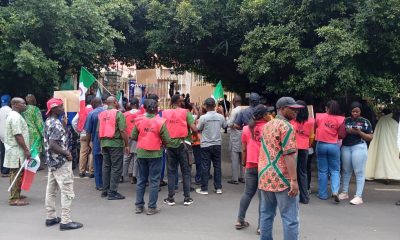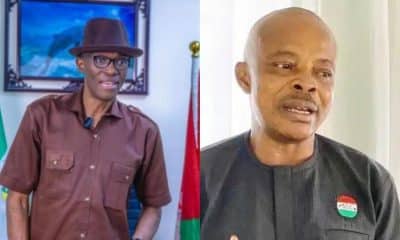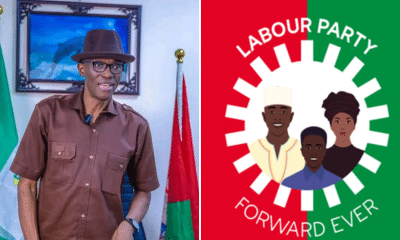Nigeria News
FG Reaffirms Labour Movement’s Importance In Building A Competitive Nation

The Federal Government reaffirmed on Wednesday that achieving the goals of decent work and harmonious industrial relations in Nigeria is not possible without the active contributions of the Labour movement.
Minister of Labour and Employment, Muhammadu Dingyadi, made this statement in Abuja during the 7th Registrar of Trade Unions National Workshop, which focused on addressing current challenges and exploring prospects in trade union administration.
In his address, Minister Dingyadi commended the critical roles played by trade unions and other stakeholders in advancing the nation’s progress, emphasizing their importance in creating a competitive, robust nation.
He expressed appreciation for the Director of the Registrar of Trade Unions and his team for their consistent efforts in organizing the workshop annually.
The Minister also highlighted the need for ongoing dialogue and engagement among labour sector stakeholders, especially to address challenges in labour administration.
He pointed out that such workshops are vital for enhancing professional service delivery and ensuring the country’s compliance with international labour standards.
“Fellow Comrades, the sustenance of this annual programme is predicated on the avowed determination of the Federal Ministry of Labour and Employment to constantly strengthen and promote the contributions of the labour sector through professional service delivery of the highest quality and global standards to meet international expectations in line with our mandate as Ministry of Labour to review, implement and enforce all government policies as they relate to issues in this great country,” Dingyadi remarked.
This workshop marked the Minister’s first official interaction with the labour stakeholders since assuming office.
He acknowledged the crucial role of the participants in educating and empowering the workforce, thereby reducing industrial disputes and promoting productivity.
“I must therefore not fail to commend the very important roles being played by you – the stakeholders in the labour circle as partners in progress in our national quest to build a strong and virile nation that would compete favourably with others in the comity of nations.
“This is because your regular education and empowerment workshops are the essential ingredients for the development of a well-informed workforce which in turn results in the overall reduction in the number of industrial disputes in our workplaces, thus as agents of change and productivity enhancement, it is clear that the cardinal goals of decent work and harmonious industrial relations cannot be achieved without your contributions as Labour movement in this great country.
“You will recall that last year’s edition of this Workshop was held with the theme” Repositioning the Labour Administration System for Effective Socio-Economic Development in Nigeria where participants came up with some recommendations at the end of the workshop such as the need for capacity building, amendment of our labour laws, strengthening of labour Institutions, consistency in policy implementations, Strong social protection nets, provision of adequate work tools and strong occupational safety and health framework for workers amongst others,” he added.
Minister Dingyadi also recalled the theme of last year’s workshop, which focused on repositioning the Labour Administration System for socio-economic development in Nigeria.
He mentioned key recommendations, including capacity building, labor law amendments, strengthening labor institutions, and improving occupational safety for workers.
This year’s theme, “Best Practices for Social Partners Engagement in a Challenging Economy,” is designed to spark insightful discussions on how social partners can collaboratively address contemporary issues affecting labour administration, particularly in Nigeria’s current economic climate.
Topics to be addressed include the legality of strikes, promoting harmonious labour relations through collective bargaining, challenges in implementing the new minimum wage, and the future of work in Nigeria’s evolving economy. Discussions will also explore the management of trade union affairs and strategies for overcoming related challenges.
The outcomes of the workshop will help the Ministry and stakeholders develop a roadmap for fostering best practices in labour engagement, industrial peace, and workplace harmony.
In his welcome address, the director overseeing the office of the Permanent Secretary, John Nyamali, noted that the event gathered government officials, policymakers, labour leaders, and industry professionals from across Nigeria.
He emphasized the importance of the workshop as a platform for discussing key labour administration issues.
Nyamali also extended his appreciation to the representatives from the Nigeria Labour Congress (NLC), Trade Unions Congress (TUC), Nigerian Employers’ Consultative Association (NECA), government agencies, resource persons, and consultants contributing to the success of the workshop.












